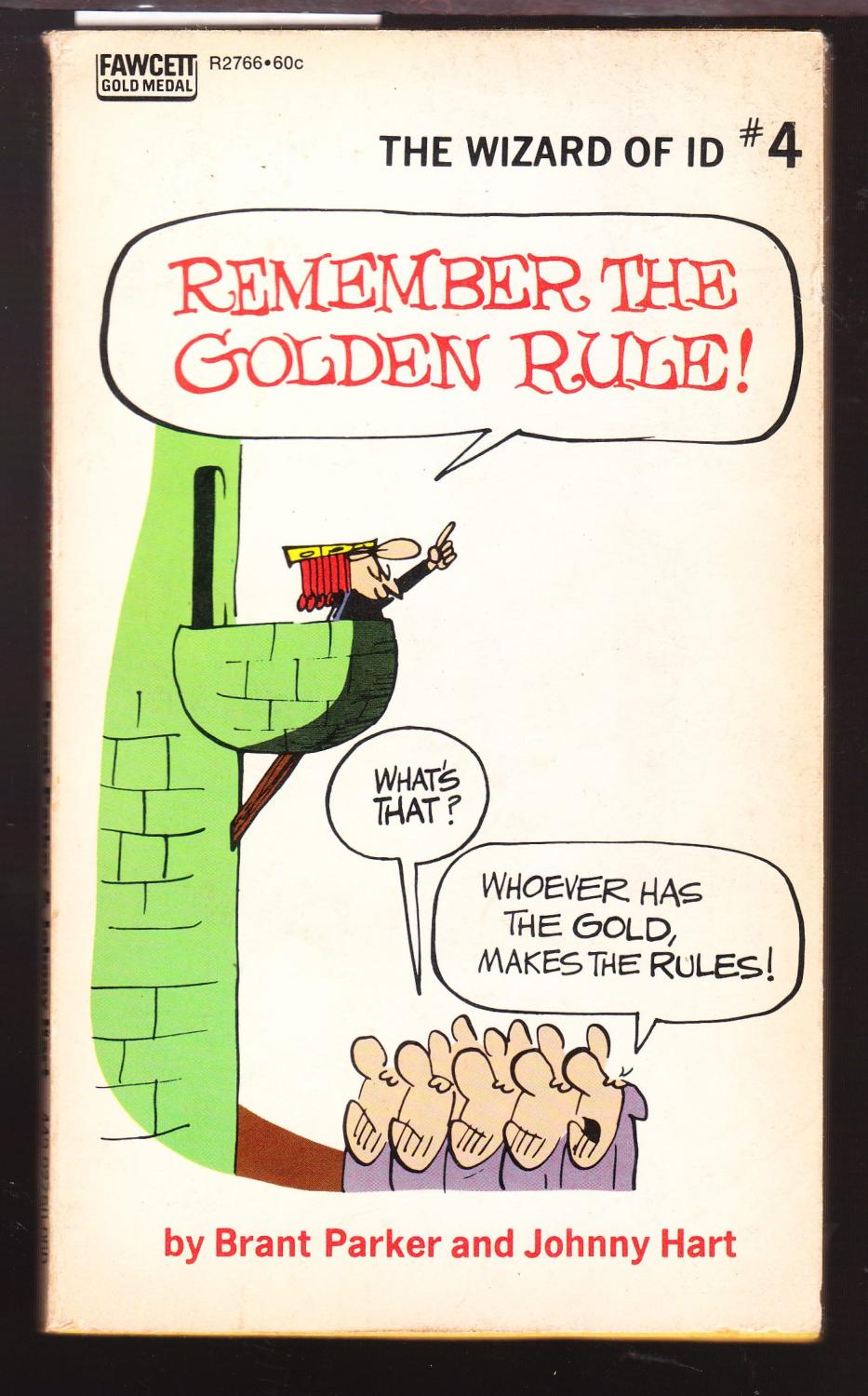How is that even legal?
Simple: the rich make the rules

I learned that from Jafar in Aladdin!
It’s private equity. So presumably they have more discretion around buy backs than public stocks.
So, while Elon Musk is an asshole, and these terms are awful, there is more to it:
They involve stock awards, which are given by the company to the employee. They can either be options (which give you a choice to buy at a certain price, and presumably you wouldn’t do that unless you can sell for higher price), or outright stock grants . They are given as part of compensation, and vest on a set timetable. (So, if someone was given 1000 shares, the employee would still see 1000 shares in some account, but they may only be able to access 100 of them every six months). So, this whole discussion is about shares the company gave to the employees in the first place.
Then, the other wrinkle is that SpaceX is a private company. That means that employees can’t just go sell their shares on the open market. So SpaceX graciously offers to buy back these private shares at whatever they think they are worth at the time. While this sounds fishy, the only other real alternative is for the employees to hold on to the shares and sell them if they go public…
… However, simply receiving the shares when they vest is a taxable event. So if SpaceX didn’t offer some way for mere mortals to turn their shares to cash, then in effect they would be saddling them with an enormous tax burden and no way to raise the cash to pay it. So they have to do it this way.
Do they really need to confiscate an employees shares if they hurt Elon’s fee-fees? Of course not. But that’s the only dumb bit here. The rest is pretty standard for a private company who attracts workers with stock benefits.
Sounds to me like the scam is to attract workers with stock benefits.
In public companies, it’s not really a scam. It’s a legitimate tool for these companies to get and keep the key people they need. The stock benefits are over and above their salary, after all, and equate to real money.
It’s the startups and private companies where this all gets a bit scammy, because there is no liquid market for these shares. And those companies are more likely to offer extra stock instead of a competitive salary, but that stock may not be able to be cashed out until the company goes public, forcing the employees to stay until the IPO, unless they give up that theoretical big payday.
As long as you exercise all the stock they give you one way or another, you can leave whenever you like. You still own the stock if you leave. The real scammy part that no one seems to mention is to give really long vesting periods
It is part of the calculus of employment. You get these shares and you deem if they are worth something (you think the company is compatently run and will IPO) or you think they are worthless.
You can talk about how pointless and probably predatory that is, but that is the current system we inhabit.
Fwiw I walked away from imaginary shares. My public company went private by a hedge fund. Honestly hedge funds are good at making short term cash so maybe that was a bad decision, but I wanted no part in the next year or more of layoffs. Plus my imaginary stock was still on a vest cycle so it would vest probably after the stock was skyrocketing.
I have read that the actuality includes a loophole you didn’t speak of:
Once someoen owns shares, they can privately-sell them, or give them away, or will them to someone…
Once enough people have done this, the “private” company becomes actually publically-traded, though not on any exchange…
…creating some legal difficulties, re regulations.
From that bit, which I never would have known to even consider ( some article I read, some years ago ), then it looks like people can sell their shares to another private-individual.
Maybe some jurisdictions prohibit that.
I don’t know, I’m just identifying an angle people apparently haven’t commonly considered.
_ /\ _
All Musk companies are sweatshops.
To think that amount of wealth can be earned is fucking naive. More than naive. More than how a child is naive. It’s willful ignorance, full stop, and if you are for it, you’re the enemy of the people.
Isn’t that market manipulation and anyway completely illegal to force buy back stock at 0$ ?? If I force you to sell me your house for 0$, whatever if it’s in a contract, that would be illegal in Europe. 1€ would be fine tho.
€1 would not be ok in Ireland, there is a rule about under value sales to stop people selling their assets to spouses when they go bankrupt.
SpaceX isn’t public, this is an internal stock system used for employee rewards. Like bonuses, but kinda more arbitrary and more gambly
Sounds like a healthy work environment
I mean… isn’t that also a legal thing?
If you know insider information that’s not public (A company misbehaved being one of them) you are not supposed to trade stock to financially gain from it.
Now that’s what you’re supposed to do… Politicians have proven that’s rules just for peasants, and most stock traders heavily benefit from this type of information, and unless your Martha Stewart for some reason, you get away with it… But my point is legally, if you know they misbehaved, that’s immediately insider information?
Edit: I misunderstood the headling/rule. Sorry. Quite a shit thing that granted stock can be revoked, especially after you pay taxes. I wonder how legal it is, because if they can revoke it, is it actually yours and thus do you have to pay taxes on it?
It’s if SpaceX decides that the employee misbehaved, not the company that misbehaved, that allows them to ban that employee from selling private stocks. Also if you leave the company for any reason you lose out on 6 months of them or if you are fired they will buy back all of your stocks at $0, all the while you are paying taxes on your stocks. So the employees could possibly end up losing money from taxes on something they never actually got because the company said so.
Also, i guess the next question is what counts as misbehaved since the company gets to decide? Does calling in sick for a day count? What about if they want you to do something that they legally can’t ask you to do and you say no? It sounds more like a ploy to control the workers even more, whether or not what SpaceX does is legal. Sure if its not legal they can sue and maybe even win, but SpaceX could drag out the suit till it has to be dropped from a lack of funds on the employees side or make it not worth the amount they would win.
Oops I misunderstood the direction. (I think it was if the employee deems they misbehaved. (I assumed “It” was the employee, not SpaceX. More obvious in hindsight I guess, my bad.)
Didn’t Martha Stewart go to jail?
That’s kind of the point I was making. (She was the one who didn’t get away with it)
I’m a little naive about how this works but how does buying and selling unlisted securities work? What does it mean to get unlisted stock? If someone was given stock as a perk but was fired what happens to the stock? I’ve never worked at a startup so I don’t know how that works…
When I’ve worked at startups I’ve received stock options. Pardon my amateur explanation, but they’re basically the option of purchasing some amount of the company at a specific price (strike price) by a certain date (if the company is public).
If you believe the company will do well, or you can wait long enough before being forced to buy or forfeit them, then you can buy at that strike price. If the stock value is higher than your strike price when you sell, then you have made money that you can now be taxed on. If you’ve bought the options and the value is lower than your strike price, then you’ve got a loss if you sell. You can also hold the shares until they go up, or ride it all the way down to $0.
I’ve heard about companies that will buy your options as a way of purchasing equity in private companies, but I have no experience with them.
That’s the best explanation I can give. I’m no expert, so please fact check me if you’re in a position where this is relevant.
Pretty much that. You are promised number of stock options at fixed price far before company goes public. If there’s ever an IPO, you can purchase your stock at that price and decide to do whatever you want to do with it. You can sell it and get money, or you can keep it and get income.
It’s what Musk did with PayPal. He never worked at PayPay, he never was part of PayPal, but the company that later came up with PayPal once merged with company Musk was part of and he got options. He was fired really fast from that company, but they can’t take his options, which is how he got rich after PayPal sold to eBay for billions.




